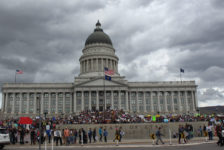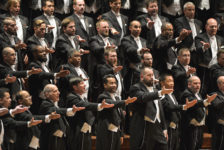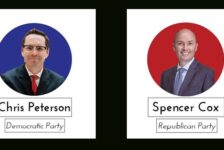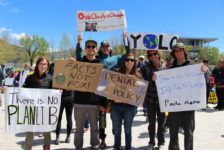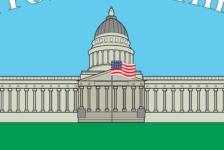 Candidates: 22—five democrats, 17 republicans. Days until the primaries begin: 151. Days until Election Day: 432.
Candidates: 22—five democrats, 17 republicans. Days until the primaries begin: 151. Days until Election Day: 432.
It’s early in the presidential election game, but as more candidates throw their name in the race for presidential nomination, the need to decipher their numerous political, economic and social stances is growing.
The National Center for Education Statistics estimates that college students compose nearly 16 percent of the U.S. population.
Candidates are zeroing in on this and placing a larger emphasis on issues that students care about.
More than ever, students are faced with the need to be educated about the candidates and active participants in the election.
Harvard’s Institute of Politics revealed in a 2012 survey that 69 percent of college students were likely to vote in the presidential election.
“I hope young people will be engaged in this election, but I think that’s up to the candidates, as well,” said Mike Zarkin, a political science professor at Westminster College. “You need candidates who will excite young people.”
Historically, Utah is consistently one of the bottom five states in regards to voter turnout, according to the University of Utah’s Hinckley Institute of Politics.
This is largely due to the lack of a primary election in Utah. Rather, the parties offer caucus voting (a meeting of the members of a political party to select candidates or decide policy) that results in limited participation.
“People have to participate in the primaries,” Zarkin said. “It makes a lot of a difference. We’re going to have a very competitive field on both sides right now, and the primaries will be important.
Zarkin suggests that people should pay more attention to what the candidates are saying.
“Here in Utah, they’ll have to do that by doing their homework,” he said. “We don’t have the luxury that they do in Iowa. Nobody is going to be coming to Utah for the primaries.”
At Westminster, students are less likely to be active participants in the election because of a lack of time, rather than a lack of interest.
“I’ve been meaning to learn more about the candidates,” said Sonya Overholser, junior math major. “I just haven’t found the time to sit down and focus on politics. I’ve been focusing more on school and work. It’s the time factor.”
Students also find they are overwhelmed by the many candidates and unaware of their stances on important issues.
“There’s so much going on that I don’t want to say something that’s incorrect,” said Amie Sinor, undeclared sophomore. “There are so many issues and I just don’t understand all of it. I don’t want to vote for the wrong person, I want to make sure I know everything about every candidate before I vote, and I just don’t have time to do all that research right now.”
Regardless of time constraints, students care about the election and where candidates stand on important issues. Many are concerned with student debt, which has reached $1.3 trillion—an issue that is taking a larger role in candidate campaigning.
“We have seen some of the candidates address the cost of college,” said Zarkin, who teaches political science. “Candidates understand the need to talk about it. People are coming out of college with a lot of debt and they’re going to be voting.”
Democrats are focusing on making college cheaper—or in some cases, free—while republicans are looking to make it more efficient and are focusing on education reform.
Both sides face hurdles in enacting their proposals. Democrats need funding, and lots of it, and republicans have to move beyond criticism to find solutions.
Students are also interested in the candidates’ stances on issues of equality and foreign policy.
“With the hullabaloo with Planned Parenthood lately, I think it’s going to be really important to see where people fall on that,” said Overholser, a student at Westminster. “It also seems like foreign policy is always on shaky ground, so I’d like somebody in office who isn’t going to start fires. I feel like Donald Trump will start fires.”
Environmental issues are also a topic of interest among Westminster students.
“I care about environmental policy, but I haven’t heard [the candidates] talking too much about it,” said Jake Bergquist, junior biology major.
Though Election Day is still over a year away, students think it’s important to get involved now.
“It’s definitely important to get involved before the primaries,” said Overholser, a student. “You have more time to gather information and more time to focus on it. I feel like your opinions will be more well-formed, no matter what they are.”
The democratic and republican parties in Utah will hold caucus voting in March 2016. In order to vote at the meeting, students must be registered with the party of their choice. Voting in the caucus allows students to make an impact on which candidates make it to Election Day.
“I think it’s important that we narrow it down to two good candidates,” said Sinor, a Westminster student. “If we get two crappy ones, then it’s a lose-lose situation.”


